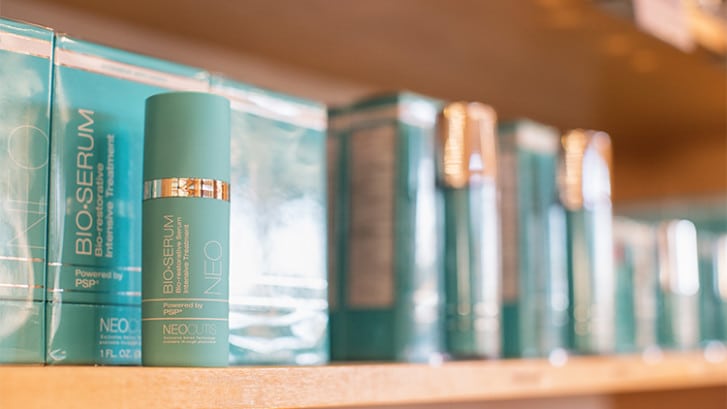At-Home Skin Care Tips to Avoid Trips to the Dermatologist
To help reduce the spread of the novel coronavirus, Minnesota issued a state-wide stay-at-home order in late March of 2020. Since then, millions of residents have had to drastically change their lifestyles. For most, this means working from home and making fewer trips to the grocery store. For many, it also means forgoing regular dermatology visits, especially for cosmetic procedures. Learn about the following skin care tips that may help you know how to modulate your regular routine.
But while skin care might not be considered an “essential” service, most gain both confidence and comfort in knowing that their skin is clear and healthy. If you’ve been struggling to care for your own skin, here are some at-home skin care tips to preserve skin health and avoid unnecessary trips to the dermatologist.
The Importance of Hand Washing – And Moisturizing
While most Americans are now familiar with handwashing’s importance, few understand the necessity of consistent hand moisturizing. If you’ve noticed dry, cracked skin on your hands and wrists, the constant soap and water use is likely to blame. To avoid potential infection, which can arise from cracked skin, invest in a high-quality moisturizer. If you’re having trouble controlling skin dryness, we recommend using two separate moisturizers – one lighter option for directly after washing and one heavier option for overnight healing.
Splurge on a Spot Treatment
Times of high physical and emotional stress are known to cause acne flare-ups. If you’re feeling more stressed out than usual, you’re likely having to deal with more consistent and persistent breakouts. While we never recommend attempting at-home extraction, we urge patients to think about investing in a high-quality spot treatment. Available over the counter, these products typically contain a high concentration of benzoyl peroxide and salicylic acid to clear up and prevent future breakouts. That said, don’t become frustrated if you can’t clear up a spot. You can always schedule an acne consultation when life returns to normal.
Skin Care and Relaxation
If you’re having trouble managing your stress and skin, trying an at-home facial is a poular skin care tip. This experience can be both relaxing and productive, allowing you to decompress while addressing ongoing skin care concerns. Skin care masks are widely available at grocery stores, drug stores, and online. To make the experience a little more special, consider putting some additional effort into your surroundings – use an essential oil diffuser, make a cup of herbal tea, and massage your face with at-home tools, like a gua sha stone.
Skin Conditions that Require Medical Attention
While many routine skin conditions don’t require immediate medical attention, others are more serious. Even if you’re avoidin unnecessary trips outside, these conditions can’t wait more than a few days or weeks.
- Melanoma and other potential skin cancers – If you notice a new spot on your body, especially if it looks like melanoma, you’ll need to visit your dermatologist as soon as possible. Melanoma is a fast-spreading and deadly skin cancer, but the prognosis can improve significantly with early and aggressive treatment.
- Psoriasis – While many experience mild forms of psoriasis, some types of the condition can be very serious – even life-threatening. If you suspect you have pustular psoriasis or erythrodermic psoriasis, contact your dermatologist. When left untreated, these forms of the autoimmune condition can result in severe fluid loss. Even the more common plaque psoriasis can become dangerous if the skin becomes infected.
- Eczema – This very common condition can sometimes become serious without active symptom management. Stasis dermatitis, for example, indicates a problem with blood flow, especially in the lower legs. This, as well as other types of severe eczema, can lead to infection, which will require immediate medical attention.
What to Do If You Need to See a Dermatologist
If you’re experiencing a skincare emergency, you’ll likely need to access medical help. Whether your condition can be addressed at home or in a medical setting, know that our clinics will be ready to resume a full schedule for all medical and cosmetic dermatology services. If you have an acne outbreak that won’t go away, or if you haven’t been able to access your regular wrinkle treatments, contact us to make an appointment later in the season.

